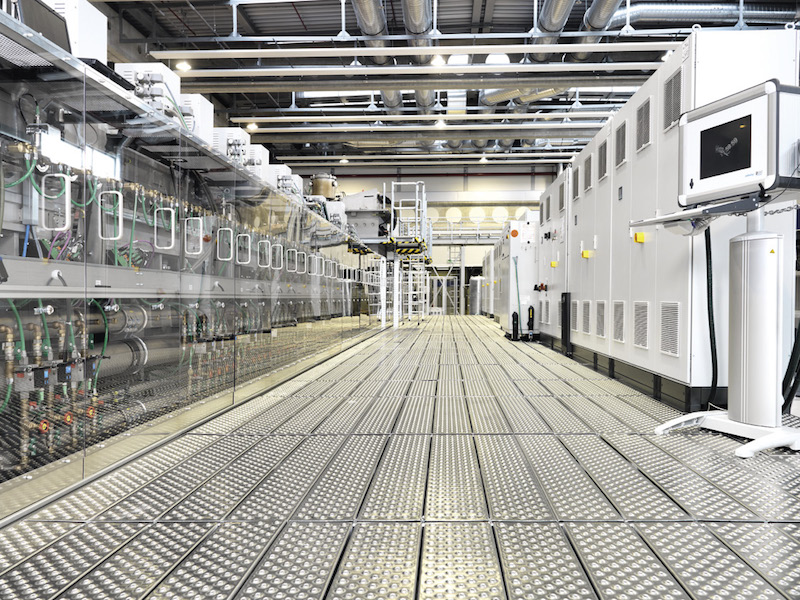Paris based IPVF, and the ZSW headquartered in Stuttgart, have signed a five-year cooperation agreement to work on flexible solar modules based on copper indium gallium selenide (CIGS) semiconductor technology.
The agreement was signed by ZSW Head of Photovoltaics Professor Michael Powalla, and IPVF President Jean-Francois Minster, at a joint event held in Stuttgart on December 20, 2017.
The collaboration, according to ZSW, aims to further exploit CIGS potential to strengthen and accelerate the deployment of PV. Focus will be on the potential for this technology in flexible applications – new materials and material combinations, as well as gaining better understanding of the processes within a CIGS cell in order to increase efficiency.
Both institutes offer considerable knowledge and experience in this area: In June 2015, ZSW set an efficiency world record for CIGS of 22.6%, which stood up until last month, when Solar Frontier announced it had developed a 22.9% efficient cell.
Having been a niche technology even within the thin film market for many years, CIGS is currently enjoying a resurgence. The first of several planned large-scale manufacturing lines for CIGS modules came online last month, with more GW scale facilities set to begin production in 2018.
This content is protected by copyright and may not be reused. If you want to cooperate with us and would like to reuse some of our content, please contact: editors@pv-magazine.com.




2 comments
By submitting this form you agree to pv magazine using your data for the purposes of publishing your comment.
Your personal data will only be disclosed or otherwise transmitted to third parties for the purposes of spam filtering or if this is necessary for technical maintenance of the website. Any other transfer to third parties will not take place unless this is justified on the basis of applicable data protection regulations or if pv magazine is legally obliged to do so.
You may revoke this consent at any time with effect for the future, in which case your personal data will be deleted immediately. Otherwise, your data will be deleted if pv magazine has processed your request or the purpose of data storage is fulfilled.
Further information on data privacy can be found in our Data Protection Policy.